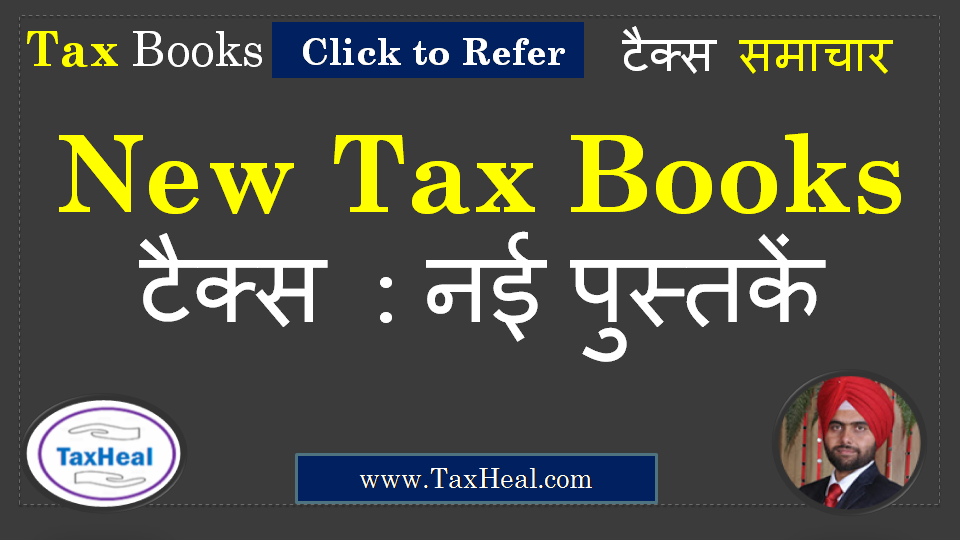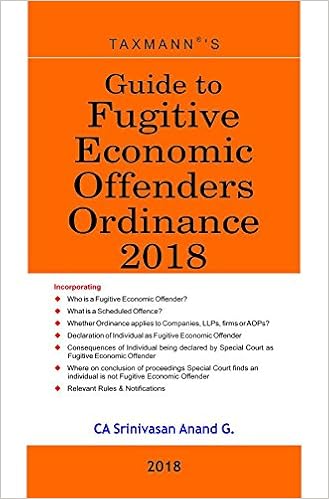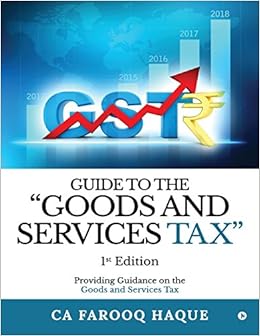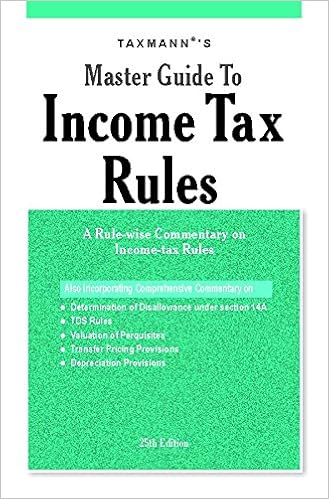JUDGMENT
T.S. Sivagnanam, J. – These appeals, by the assessee, the Tamilnadu Magnesite Limited, are directed against the common order passed by the Income Tax Appellate Tribunal, “D” Bench, Chennai (ITAT) in ITA Nos.1436/Mds/03 and 825/Mds/04 for the assessment years 1998-99 and 1999-2000 respectively, dated 07.07.2006.
2. The appeals were filed by the Revenue before the ITAT challenging the orders passed by the Commissioner of Income Tax (Appeals) (CIT (A)) dated 25.04.2003 and 09.12.2003, by which the Commissioner allowed the appeals filed by the assessee and deleted the addition of Rs. 11,58,25,167/-, which was claimed by the assessee to be revenue expenditure. The said order of the Commissioner was reversed by the ITAT restoring the order of the Assessing Officer.
3. The facts, which are necessary for the disposal of these appeals, are as follows. For the assessment year 1998-99, the assessee had filed return of income showing a total loss of Rs. 11,95,25,000/- as project expenses on the strength of the charge created to the said effect in the profit and loss account. A note was appended stating that due to various reasons, the Government of Tamil Nadu had ordered the closure of the implementation of the Chemical Beneficiation Project vide G.O.No.140, Industries Department, dated 11.05.1998 and as a consequence, upon considering commercial prudence, major portion of intangible assets were shown as revenue expenditure.
4. The assessee placed reliance on the following decisions:—
| (i) |
|
CIT v. Woodcraft Products Ltd. [1996] 217 ITR 862 (Cal.) and |
| (ii) |
|
CIT v. Alembic Glass Industries Ltd. [1976] 103 ITR 715 (Guj.). |
5. The Assessing Officer while completing the assessment held that the expenditure is capital in nature and therefore, declined to accept the assessee’s claim of expenses in the profit and loss account, as they had utilised money from the capital account and aid from the Government of Tamil Nadu termed as “capital work-in-progress”.
6. Further, the Assessing Officer stated that the assessee was making expenses for the new venture from the capital account and in the balance-sheet only, it would have been better if the capital work-in-progress is reduced by Rs. 11.58 crores, without reducing the operating revenue of the company. Thus, the Assessing Officer held that the expenses were incurred before the company could establish the new Chemical Beneficiation Plant. Machineries have been imported and lying in Madras Port. Therefore, declined to accept the claim of the assessee of Rs. 11.58 crores as project expenses as revenue expenses.
7. The assessee filed appeals before the CIT (A). The CIT (A) considered the facts of the case and by orders dated 25.04.2003 and 09.12.2003, allowed the appeals filed by the assessee. The CIT (A) pointed out that looking at the facts and circumstances of the case as per the assessment order, the sole ground, on which the Assessing Officer described that the proposition appears to be utilisation of funds from capital account and aid from Government of Tamil Nadu and using the term “capital work-in-progress”, the Assessing Officer came to a conclusion that the assessee had started a new venture and new project and incurred capital expenditure and thought fit to disallow. The CIT (A) held that as amply enumerated in the case laws and the Government Order, it came to light that the assessee’s basic intention was to take over the Chemical Beneficiation Project from the Tamil Nadu Industrial Development Corporation (TIDCO) for production of ‘high quality sintered magnesia’, which is one of the products of the assessee company. Therefore, the appellate authority held that, it cannot be said that a new venture has come into existence. With these observations, the appeals were allowed by the CIT (A) and the Assessing Officer was directed to delete the addition of Rs. 11,58,25,167/-.
8. As against the orders passed by the CIT (A), the Revenue preferred appeals before the Tribunal. The Tribunal, by the impugned orders, has allowed the appeals of the Revenue and restored the orders passed by the Assessing Officer. In so doing, the Tribunal pointed out that the expenditure was incurred by the assessee to acquire a new asset and it was the expansion of the profit making apparatus and the fixed asset of the assessee got increased. Expenditure was incurred to acquire the profit earning apparatus and not for operating the profit earning apparatus. Further, it was pointed out that the Chemical Beneficiation Plant was ordered to be closed due to non-availability of Government approval and there is absolutely nothing on record to indicate that the expenditure was incurred in the Revenue field.
9. The above tax case appeals have been admitted on the following substantial questions of law.
| “(a) |
|
Whether the Tribunal is correct in rejecting the claim of deduction/loss relating to the ‘project expenses’ in the computation of taxable total income relating to the assessment year(s) under consideration? |
| (b) |
|
Whether the Tribunal is correct in concluding that the expenses were capital in nature even though such expenses were incurred for ‘possible expansion’ of the existing business? |
| (c) |
|
Whether the Tribunal is correct in law in concluding that the expenses claimed were in the nature of capital field even though the incurring of expenses did not result in creation of any asset of enduring in nature?” |
10. Mr. A.S. Sriraman, learned counsel for the appellant submitted that the Tribunal has not assigned any reason to reverse the well considered order of the CIT (A), as it failed to appreciate that the expenses incurred in the implementation of the abandoned project under consideration have not brought any asset into existence, inasmuch as the expenses incurred on the said abandoned project would constitute deductible loss.
11. Further, it is submitted that the ITAT failed to appreciate that the venture undertaken was not a new one, but, in fact one in the same line of business already being carried on by the assessee company. The assessee had claimed that the expenses incurred for the implementation of the project was claimed as revenue expenses/business loss in the computation of total taxable income on the strength of the Government Order in G.O.No.140, directing closure of the project and cancellation of the allotment of the land. This aspect of the matter was not considered by the Tribunal and without reference to the factual position, the impugned order has been passed.
12. Further, it is submitted that the decisions, which were referred to by the assessee were not properly considered by the Tribunal and the factual position in those decisions were not appreciated. Thus, it is submitted that when there is no new business, which has been created and there is no creation of any new asset, nor there being any enduring benefit accrued to the assessee, the expenditure should be treated as revenue and not as capital.
13. Further, it is pointed out that, though it may be true that the expenditure was incurred from the capital account, that would not be the proper test to determine the nature of expenditure for the reasons not attributable to the assessee, when the existing unit ought to be closed.
14. In support of his contention, the learned counsel placed reliance on the following decisions:—
| (i) |
|
Indo Rama Synthetics (I) Ltd. v. CIT [2011] 333 ITR 18 (Delhi) |
| (ii) |
|
Binani Cement Ltd. v. CIT [2016] 380 ITR 116 (Cal.) |
| (iii) |
|
CIT v. Tata Robins Fraser Ltd. [2012](Jharkhand) |
| (iv) |
|
Asia Power Projects (P.) Ltd. v. Dy. CIT [2015] 370 ITR 257 (Mag.) (Kar.), and |
| (v) |
|
Thiruvengadam Investments (P.) Ltd. v. Asstt. CIT [T.C.(A) No. 583 of 2007, dated 5-1-2016], which was followed by a Division Bench of this Court in CIT v. Prasad Productions [T.C. (A) No. 905 of 2008, dated 4-4-2018]. |
15. Mr. S. Rajesh, learned Standing Counsel for the Revenue sought to sustain the order passed by the ITAT by referring to the factual position as stated in the assessment order dated 15.09.2000. It is submitted that the expenditure is capital in nature, as the money was drawn from the capital account and it is an aid extended by the Government of Tamil Nadu termed as “capital work-in-progress” and merely because the project was abandoned on account of cancellation of the approvals granted by the Government of Tamil Nadu, that will not change the character of the expenditure to that of the revenue, as the expenditure was incurred for acquisition of tangible assets.
16. Further, the learned Standing Counsel referred to the order passed by the CIT (A) more particularly paragraph 5 of the order, which referred to the Government Order and the decision taken by the Government to abandon the project and submitted that merely because the project was abandoned, that will not be a reason to treat the expenditure as revenue.
17. In support of his contentions, the learned Standing Counsel placed reliance on the following decisions:—
| (i) |
|
Empire Jute Co. Ltd. v. CIT [1980] (SC) |
| (ii) |
|
E.I.D. Parry (India) Ltd. v. CIT [2002] 257 ITR 253 (Mad.) |
| (iii) |
|
Mascon Technical Services Ltd. v. CIT [2013] 358 ITR 545 (Mad.) |
| (iv) |
|
Malabar & Pioneer Hosiery (P.) Ltd. v. CIT [2008] 302 ITR 720 (Ker.), and |
| (v) |
|
CIT v. Idea Cellular Ltd. [2016] (Bom.), against which the revenue has preferred appeal before the Hon’ble Supreme Court and the Special Leave Petition has been admitted as CIT v. Idea Cellular Ltd. |
18. We have heard the learned counsels for the parties and carefully perused the materials placed on record.
19. The common issue involved in both the appeals is whether the Tribunal was justified in reversing the decision of the CIT (A) deleting the addition made by the Assessing Officer on the ground that the expenditure incurred by the assessee was revenue in nature and not capital.
20. To decide the substantial questions of law framed for consideration, we would have to apply the proper test, which would distinguish capital and revenue expenditure. This question came up for consideration before the Hon’ble Supreme Court in Empire Jute Co. Ltd. (referred supra). It was pointed out that from time to time cases have evolved various tests for distinguishing between capital and revenue expenditure, but, no test is paramount or conclusive. Further, there is no all-embracing formula, which can provide a ready solution to the problem; no touchstone has been devised. It was pointed out that every case has to be decided on its own facts keeping in mind the broad picture of the whole operation in respect of which the expenditure has been incurred. After referring to the decision of Lord Radcliffe in CIT v. Nchanga Consolidated Copper Mines Ltd. [1965] 58 ITR 241 (PC), it was held that it would be misleading to suppose that, in all cases, securing a benefit for the business would be prima facie capital expenditure “so long as the benefit is not so transitory as to have no endurance at all”.
21. Further, it was held that there may be cases where expenditure even if incurred for obtaining advantage of enduring benefit, may, nonetheless, be on revenue account and the test of enduring benefit may break down. It was pointed out that it is not every advantage of enduring nature acquired by an assessee that brings the case within the principle laid down in this test. What is material to consider is the nature of advantage in a commercial sense and it is only where the advantage is in the capital field that the expenditure would be disallowable on an application of this test.
22. Further, it was pointed out that if the advantage consists merely in facilitating the assessee’s trading operations or enabling the management and conduct of the assessee’s business to be carried on more efficiently or more profitably while leaving the fixed capital untouched, the expenditure would be on revenue account, even though the advantage may endure for an indefinite future. Thus, it was held that the test of enduring benefit is not a certain or conclusive test and it cannot be applied blindly and mechanically without regard to the particular facts and circumstances of a given case.
23. Further, it was held that another test, which is often applied is the one based on distinction between fixed and circulating capital. This test was applied by Lord Haldane in the case of John Smith & Son v. Moore 12 TC 266, where the learned Law Lord drew the distinction between fixed capital and circulating capital by holding that fixed capital is what the owner turns to profit by keeping it in his own possession; circulating capital is what he makes profit of by parting with it and letting it change.
24. Bearing the above legal principles in mind, we proceed to examine the facts of the instant case. It is not in dispute that the Chemical Beneficiation Plant was already established by TIDCO and on account of their not being able to achieve the desired result, the assessee was invited to take over the project, as the assessee possessed expertise in the field. This is how the assessee stepped into the project and by turn of events, the Government granted approval during the year 1998.
25. As could be seen from the order passed by the CIT (A), the assessee had entered into an arrangement with TIDCO as well as with IDBI and fixed the project cost with a debt equity ratio, which was approved by the Government of Tamil Nadu and thereafter, steps were taken to acquire land, import machinery etc. In the meantime, 12 years had passed by and the project had not taken off. The IDBI had withdrawn from the project, as it was found to be unviable and another co-promoter viz., M/s. Khaltan Supermag Limited was brought in and a joint sector company was formed with the assessee subject to certain conditions. However, the said co-promoter, M/s. Khaltan Supermag Limited expressed inability to be a part of the project and after 12 years, the Government took a decision to sell the project and consequently, cancelled the allotment of 47 acres of land in favour of the assessee. The above facts clearly demonstrate that the assessee though had entered into arrangement with the banks and co-promoters and took action for acquisition of land, import of machineries, etc., no new venture was established by the assessee. The venture, which was to be taken over by the assessee and operated did not fructify, not on account of the conduct of the assessee, but on account of the decision of the Government of Tamil Nadu. In our considered view, the decision of the Government of Tamil Nadu to sell the project is a very important fact, which has to be borne in mind to decide as to whether the expenditure incurred by the assessee was capital or revenue in nature.
26. The Assessing Officer fell in error in going by the fact that the expenditure was incurred from the capital account forgetting that the test to be applied to ascertain as to whether the expenditure is revenue or capital is not based on where the funds were drawn from. The broad parameters and tests, which have been laid down by various decisions are that there should be an enduring benefit, which should accrue to the assessee and there should be a creation of a new asset. In the instant case, both these parameters remain unfulfilled.
27. The High Court of Delhi in Indo Rama Synthetics Ltd. (supra) held that if the expenditure is incurred for starting a new business, which was not carried out by the assessee earlier, then such expenditure was held to be capital in nature. However, if the expenditure incurred is in respect of the same business, which is already carried on by the assessee, even if it is for the expansion of the business, viz., to start a new unit, which is same as earlier business and there is unity of control and a common fund, then such an expense is to be treated as business expenditure and in such a case whether it is a new business/asset would become a relevant factor.
28. It is further held that if there is no creation of new asset, then the expenditure incurred would be revenue in nature. However, if the new asset comes into existence, which is of enduring benefit, then such expenditure would be capital in nature.
29. The Hon’ble Delhi High Court took note of the decision of the Gauhati High Court in Dy. CIT v. Assam Asbestos Ltd. [2003] 263 ITR 357. The High Court of Calcutta in the case of Binani Cement Ltd. (supra), considered a case where the Tribunal disallowed the expenditure allegedly incurred by the assessee for preparing feasibility study report and capital work-in-progress in the earlier years but written off during the previous year, since the proposed project was abandoned. The Court affirmed the view taken by the CIT (A), where it was held that the company claimed as allowable the expenditure on this abandoned project. While it was found to be unviable, the expenditure on it was for the purpose of business and it was not claimed or allowed earlier as business expenditure because it was of capital nature entitled to depreciation after completion and on commencement of its use for business and that stage having not reached and no asset having come into existence, the capital work-in-progress had to be written off as such.
30. In the case of Asia Power Projects (P.) Ltd. (supra), the High Court of Karnataka held that, if the assessee incurs a liability and when the contract under which that liability was incurred was terminated and when no amounts under the or in pursuance of a claim is receivable, he is entitled to claim the said amount incurred as expenditure in implementing the contract as a set off under Section 37(1) read with 28 of the Income Tax Act, 1961.
31. Insofar as the abandoned feature films are considered, a Division Bench of this Court in the case of Tiruvengadam Investments (P.) Ltd. v. Asstt. CIT [2016] 95 CCH 0024, referring to a circular issued by the CBDT in Circular No.16/2015 dated 06.10.2015, held that film production expenses of abandoned films should be treated as revenue expenditure. This decision was followed in the case of Asia Power Projects P. Ltd. (supra).
32. The learned counsel for the Revenue strenuously contended that a new project had emerged and it is immaterial whether machinery was reduced to scrap and ordered to be sold and what is required to be seen is that the expenditure was incurred from the capital account.
33. In our considered view, reliance placed on the decision of this Court in the case of E.I.D. Parry (India) Ltd. (supra) and the Kerala High Court in the case of Malabar & Pioneer Hosiery (P.) Ltd. (supra) is of little avail, as in both cases, it was for a new project, in contra distinction with the factual position in the case on hand. Therefore, those decisions are factually distinguishable. Heavy reliance was placed on the decision of this Court in the case of Mascon Technical Services Ltd.(supra).
34. At the first blush it appears that the decision would help the case of the revenue, but on a closer reading it proves otherwise. The question was whether the assessee was justified in seeking for bifurcation of the expenses incurred into capital and revenue. The Division Bench referred to the decision in the case of Brooke Bond India Ltd. v. CIT [1997] 225 ITR 798 (SC). In the case of Brooke Bond India Ltd. (supra), it was held that expenditure, in connection with the additional issue of shares, paid to the Registrar of Companies by way of filing fee and hence, has no application. The Division Bench held that the decision in the case of Brooke Bond India Ltd. (supra) would have no application to the facts of the case, as the expenditure incurred by the assessee were shown in the books of accounts as towards issue expenses incurred during the year and they found there was no justifiable ground to dissect one part of the expenditure as revenue expenditure and another part as capital expenditure. As pointed out by the Hon’ble Supreme Court in Empire Jute Co. Ltd.(supra), we cannot take a decision sans facts and the factual position as set out in the preceding paragraph would clearly show that the abandoned project was not a new one and it was a decision taken by the Government after about 12 years after the petitioner was invited to take over the project, which was already in existence, as they were an expert in the same line of business. Therefore, on facts, we find that the CIT (A) was perfectly right in deleting the addition and holding that the expenditure was revenue not capital expenditure. We may point out that the decision in the case of Ideal Cellulura Ltd.(supra) was also a case where the expenditure was incurred to bring into existence a new asset, which is not so in the case on hand. Therefore, the said decision is also distinguishable on facts.
35. In the result, both the tax case appeals are allowed, the order passed by the Tribunal is set aside and the substantial questions of law framed for consideration are answered in favour of the assessee and against the revenue.


 View Price and Buy online :
View Price and Buy online : 
































 Price Rs 1525
Price Rs 1525
![TDS How to Meet Your Obligations-As Amended by Finance Act 2018 [24th Edition (F.Y 2018-19)]](https://images-na.ssl-images-amazon.com/images/I/510QDNj9khL._SX327_BO1,204,203,200_.jpg)

![Guide to Income Computation and Disclosure Standards-As Amended by Finance Act 2018 [3rd Edition(A.Y 2018-19)]](https://images-na.ssl-images-amazon.com/images/I/41LO4TaZV5L._SX327_BO1,204,203,200_.jpg)



